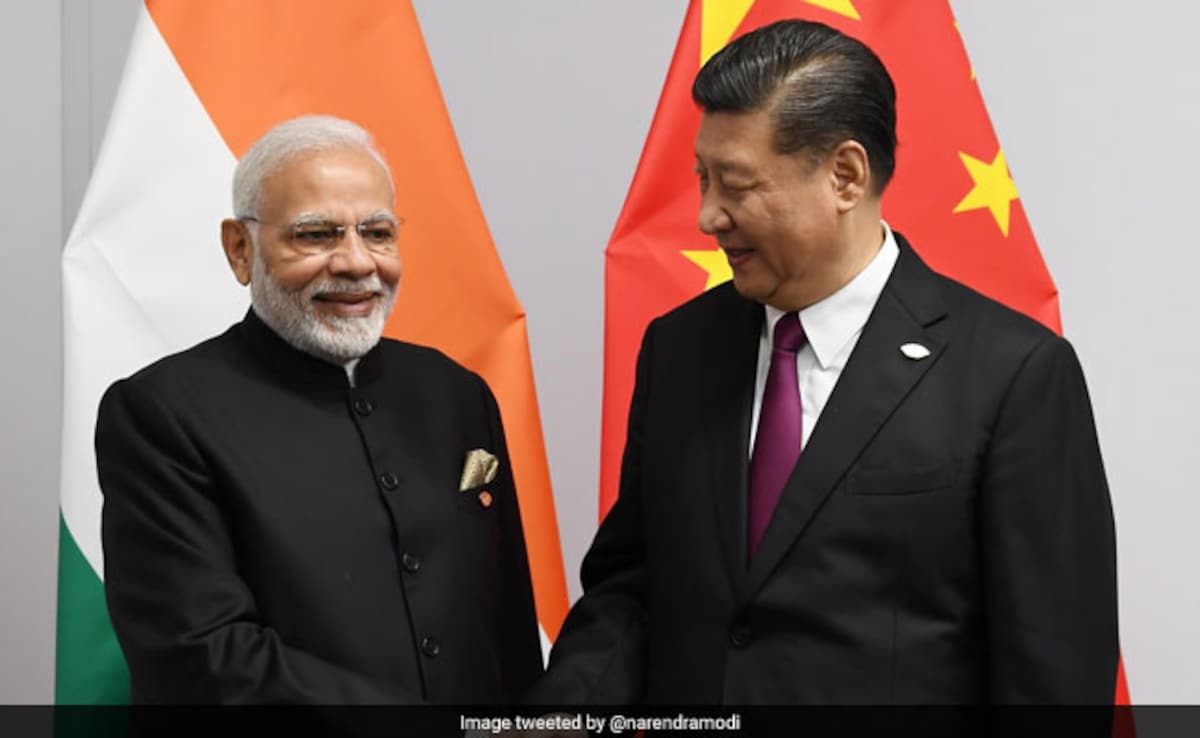New Delhi:
As tensions between China and the United States ramp up – particularly after the US doubled tariffs on Chinese imports to 20 per cent – China’s Foreign Minister Wang Yi called on New Delhi and Beijing to work together and “take the lead in opposing hegemonism and power politics”.
Speaking Friday afternoon, after a National People’s Congress meet, Mr Wang said “making the dragon and elephant dance (is) a reality that is the only right choice”. He also said, “Supporting each other, instead of wearing each other down, and strengthening cooperation, instead of guarding (against) each other, is in the fundamental interests of both peoples and nations.”
In what has been seen as a big outreach to Delhi, he also said if the two nations – Asia’s two largest economies – combine, “democratisation of international relations and development and strengthening of ‘Global South’ (i.e., referring to less developed Asian, African, and South American nations, and a term used often by Prime Minister Narendra Modi) will have a brighter future”.
India has not yet responded to this statement.
However, on Thursday Foreign Minister S Jaishankar said the Indian government is working with China to plot “a more predictable and positive course” for the relationship, measures for which will include resumption of pilgrimages to sites under China’s control, direct flights, and exchange of journalists.
China’s India ‘Outreach’?
In a response to a question about Beijing’s evolving ties with Delhi, Mr Wang also pointed to “positive strides” over the past year, referring to military disengagement in Ladakh’s Depsang and Demchok.
Following that, there was a notable thaw in relations, with Prime Minister Narendra Modi and China’s Xi Jinping meeting in Russia’s Kazan in October last year and Mr Wang meeting National Security Advisor Ajit Doval at a Special Representatives meeting in Beijing in December.
On the border dispute, he stressed, “We should never allow bilateral relations to be defined by the boundary question, or (allow) specific differences to affect overall bilateral ties.”
The statements comes as a tariff war brews between the US and China, a battle that is a redux of events from Donald Trump’s first term as US President.
Mr Trump on Tuesday signed an order to hike – from 10 to 20 per cent – tariffs on Chinese imports into his country. The increase, the White House said, was retaliation for Beijing failing to control export of fentanyl, a deadly manufactured narcotic linked to an opiod crisis in the US.
China’s response was swift and furious; 24 hours later the Chinese embassy in the US said, “If war is what the US wants… be it tariff, trade, or any other type, we’re ready to fight till the end.”
READ | “If War Is What US Wants…”: China’s Sharp Retort To Trump’s Tariffs
Beijing has, in turn, imposed levies of up to 15 per cent on a range of American agricultural products, including soybeans, pork, and wheat, starting early next week.
China has also filed a complaint with the World Trade Organization, alleging the “unilateral tax… seriously violates WTO rules and undermines the foundation of China-US economic and trade cooperation”. China also slammed the fentanyl claim, calling it a “flimsy excuse to raise tariffs”.
Tariffs have become a headline-grabbing weapon in the second Trump administration, with the new President wielding it (or the threat of) to bully other nations into getting what he wants; this includes forcing Colombia to accept planeloads of deported illegal immigrants.
Mr Trump has also levied tariffs against India, a country he has repeatedly classified as a “high tariff nation” and a “big abuser”. He has vowed reciprocal tariffs on India and China.
READ | Trump’s “Reciprocal Tariff On India” Reveal In Congress Speech
On the India tariffs question, Mr Trump criticised high taxes charged by India (and other nations) in an address to the US Congress, calling them “very unfair” and warning of similar treatment.
READ | Trump Repeats “High Tariff” Remark On India In “Big One On…” Warning
Mr Trump and Mr Modi met in Washington, D.C. last month, hours before
Under Mr Trump the US has also imposed tariffs on Canada and Mexico – the US’ two largest trading partners – citing issues like illegal immigration and drug trafficking. Canada’s Justin Trudeau accused Mr Trump of targeting friendly nations and allies while “appeasing” Russia over the Ukraine war.




